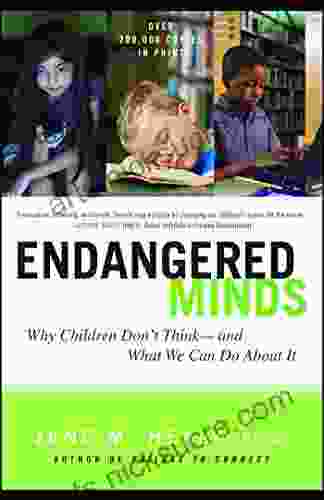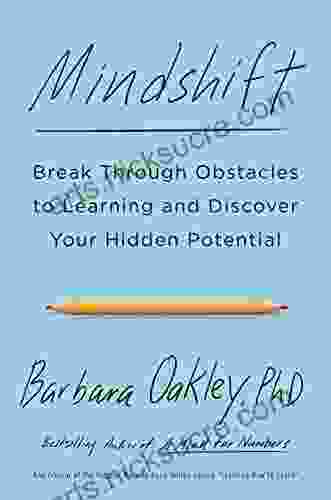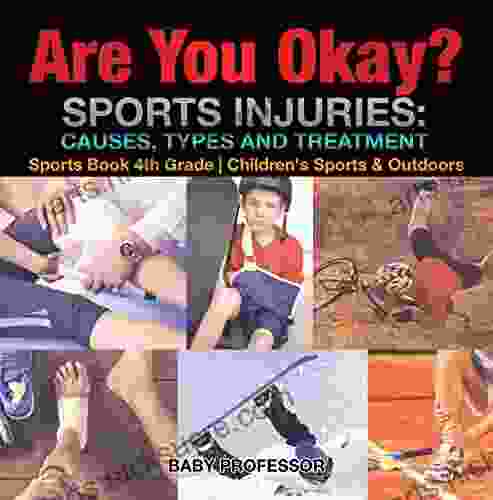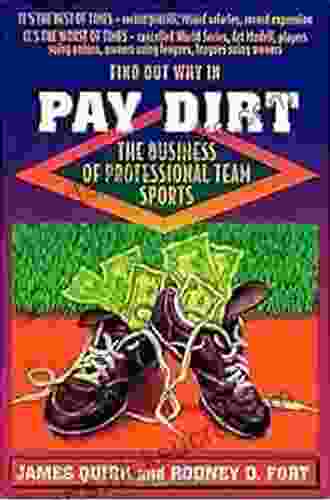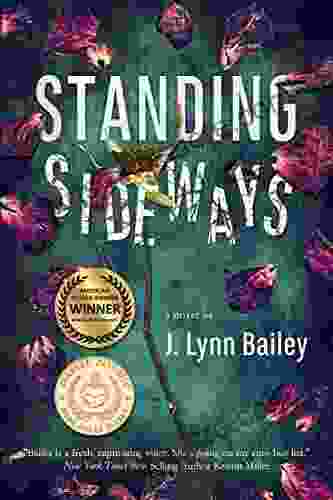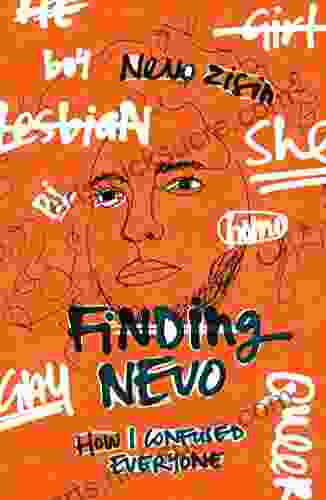Why Children Don't Think and What We Can Do About It

Critical thinking, the ability to analyze, evaluate, and synthesize information to form sound judgments, is a cornerstone of academic and life success. Yet, research suggests that children often fall short in this crucial area. This article aims to shed light on the reasons behind children's limited critical thinking abilities and proposes practical strategies to enhance their cognitive development, empowering them to become effective problem-solvers and critical thinkers.
Why Don't Children Think?
- Cognitive Immaturity: Children's brains are still developing, particularly the prefrontal cortex, which is responsible for higher-order cognitive functions like reasoning, decision-making, and self-control.
- Lack of Experience: Critical thinking requires practice and exposure to diverse perspectives. Children with limited life experiences have fewer opportunities to exercise their cognitive muscles.
- Limited Exposure to Complex Information: Children often encounter simplified or age-appropriate information that fails to challenge their thinking. They need access to complex materials to stimulate their intellectual growth.
- Overemphasis on Memorization: Traditional educational practices may prioritize memorization over critical thinking. This can create a rote learning culture that stifles independent thought.
- Fear of Failure: Children may be reluctant to engage in critical thinking out of fear of being wrong or making mistakes. This fear can hinder their exploration and experimentation with different ideas.
Strategies to Enhance Critical Thinking
- Foster Curiosity and Inquiry: Encourage children to ask questions, explore their surroundings, and seek answers beyond superficial explanations. Nurture their natural curiosity by providing them with opportunities to investigate and discover.
- Provide Exposure to Complex Materials: Introduce children to age-appropriate books, articles, and documentaries that challenge their thinking and expand their perspectives. Engage them in discussions about diverse viewpoints and encourage them to form their own opinions.
- Encourage Problem-Solving: Pose open-ended questions, present real-world problems, and guide children through the process of finding solutions. Allow them to explore multiple possibilities and evaluate the strengths and weaknesses of different approaches.
- Promote Collaborative Learning: Facilitate group discussions, debates, and other collaborative activities that encourage children to engage with each other's ideas, challenge assumptions, and refine their thinking through peer interactions.
- Create Safe Learning Environments: Establish classrooms and homes where children feel comfortable expressing their thoughts and ideas without fear of judgment or ridicule. Foster an environment that values critical thinking and encourages children to take intellectual risks.
Children's limited critical thinking abilities are a multifaceted issue with various underlying causes. However, by understanding these challenges and implementing practical strategies, we can empower children to develop their cognitive skills and become effective problem-solvers and lifelong learners. By fostering curiosity, providing exposure to complex materials, encouraging problem-solving, promoting collaboration, and creating safe learning environments, we can nurture the critical thinking abilities of the next generation and equip them with the tools they need to thrive in a rapidly changing world.
4.3 out of 5
| Language | : | English |
| File size | : | 1056 KB |
| Text-to-Speech | : | Enabled |
| Screen Reader | : | Supported |
| Enhanced typesetting | : | Enabled |
| Word Wise | : | Enabled |
| Print length | : | 395 pages |
4.3 out of 5
| Language | : | English |
| File size | : | 1056 KB |
| Text-to-Speech | : | Enabled |
| Screen Reader | : | Supported |
| Enhanced typesetting | : | Enabled |
| Word Wise | : | Enabled |
| Print length | : | 395 pages |
Do you want to contribute by writing guest posts on this blog?
Please contact us and send us a resume of previous articles that you have written.
 Fiction
Fiction Non Fiction
Non Fiction Romance
Romance Mystery
Mystery Thriller
Thriller SciFi
SciFi Fantasy
Fantasy Horror
Horror Biography
Biography Selfhelp
Selfhelp Business
Business History
History Classics
Classics Poetry
Poetry Childrens
Childrens Young Adult
Young Adult Educational
Educational Cooking
Cooking Travel
Travel Lifestyle
Lifestyle Spirituality
Spirituality Health
Health Fitness
Fitness Technology
Technology Science
Science Arts
Arts Crafts
Crafts DIY
DIY Gardening
Gardening Petcare
Petcare Louisa J Morgan
Louisa J Morgan Shmuel Goldberg
Shmuel Goldberg Michael J Domitrz
Michael J Domitrz John Passmore
John Passmore Leslie T Chang
Leslie T Chang Frank C Keil
Frank C Keil Barry Brown
Barry Brown George A Morgan
George A Morgan Nastassja Martin
Nastassja Martin Adrian Smith
Adrian Smith Greg Wyshynski
Greg Wyshynski Joseph Bruchac
Joseph Bruchac Mildred Johnson
Mildred Johnson Lori Bregman
Lori Bregman Jasmine Taylor
Jasmine Taylor John Shelton Reed
John Shelton Reed Brad Borkan
Brad Borkan Adrian Wallwork
Adrian Wallwork Allen Hedrick
Allen Hedrick Christy Isbell
Christy Isbell Staci Frenes
Staci Frenes Max Jammer
Max Jammer Bob Forsch
Bob Forsch Tessa Bielecki
Tessa Bielecki Edgar Giffenig
Edgar Giffenig Robin Jones Gunn
Robin Jones Gunn Charles R Swindoll
Charles R Swindoll Barry Glassner
Barry Glassner Eliane Kurbegov
Eliane Kurbegov Ilene Skeen
Ilene Skeen Alex Aster
Alex Aster Timothy J Baroni
Timothy J Baroni Phil Cousineau
Phil Cousineau John Feinstein
John Feinstein Laura Zinn Fromm
Laura Zinn Fromm Michael D Rich
Michael D Rich Ae Marling
Ae Marling Max Porter
Max Porter Zoe Clark Coates
Zoe Clark Coates Jake Schafft
Jake Schafft Seth Berkman
Seth Berkman Susan Garcia
Susan Garcia Herbert L Roitblat
Herbert L Roitblat Ed Hanczaryk
Ed Hanczaryk Carol Grbich
Carol Grbich Lucy Wolfe
Lucy Wolfe Laura Fuentes
Laura Fuentes Amy Racina
Amy Racina William Smith
William Smith Joanna Warrington
Joanna Warrington Gary Lonesborough
Gary Lonesborough Adam Schupak
Adam Schupak Jay Mcgraw
Jay Mcgraw Nicholas Kardaras
Nicholas Kardaras Kieran Higgins
Kieran Higgins Michele Angello
Michele Angello Jeff Wiltse
Jeff Wiltse Jacqueline Houtman
Jacqueline Houtman Peggy Tharpe
Peggy Tharpe Ben Marcus
Ben Marcus D J Conway
D J Conway Konstantinos Mylonas
Konstantinos Mylonas Sylvia Nasar
Sylvia Nasar Thich Nhat Hanh
Thich Nhat Hanh Herb Carnegie
Herb Carnegie Adam Shoalts
Adam Shoalts John North
John North David Sloan Wilson
David Sloan Wilson Scott B Williams
Scott B Williams Andrea Ros
Andrea Ros Sarah Stillman
Sarah Stillman Kenneth Martz
Kenneth Martz Dagogo Altraide
Dagogo Altraide Adam Weymouth
Adam Weymouth Bryan Willis
Bryan Willis Lakshya Trivedi
Lakshya Trivedi Marc Roche
Marc Roche Susan Adams
Susan Adams Linus Wilson
Linus Wilson Bonnie Raingruber
Bonnie Raingruber Joe Harkness
Joe Harkness Michael Brooks
Michael Brooks Ursula Goodenough
Ursula Goodenough Cynthia A Robertson
Cynthia A Robertson Adam Stevenson
Adam Stevenson Larry Clay
Larry Clay Alondra Nelson
Alondra Nelson Susan Rovezzi Carroll
Susan Rovezzi Carroll Heather Lende
Heather Lende Joe Posnanski
Joe Posnanski Kevin Van Whye
Kevin Van Whye Wayne Curtis
Wayne Curtis Adharanand Finn
Adharanand Finn Alexandra Christo
Alexandra Christo Ahmad Al Sukaini
Ahmad Al Sukaini Warwick Rodwell
Warwick Rodwell Agatha Christie
Agatha Christie Amelia Simmons
Amelia Simmons Susy Lee
Susy Lee Eric Orton
Eric Orton Issendai Bechau
Issendai Bechau Vedant J Maheshwari
Vedant J Maheshwari Aditya Chatterjee
Aditya Chatterjee Liao Yiwu
Liao Yiwu Barbara Mertz
Barbara Mertz Mayuri Saxena
Mayuri Saxena Alisscia B
Alisscia B Elias M Stein
Elias M Stein Amy Blakeslee
Amy Blakeslee Thomas E Gilson
Thomas E Gilson James P Lewis
James P Lewis Adams Media
Adams Media Kirk Deeter
Kirk Deeter Adrienne Rawlinson
Adrienne Rawlinson Anita Shreve
Anita Shreve Peter L Bernstein
Peter L Bernstein Annie Gilbert Coleman
Annie Gilbert Coleman Aubre Tompkins Cnm
Aubre Tompkins Cnm Marie Colvin
Marie Colvin Erin Eileen Leigh
Erin Eileen Leigh Dan Fagin
Dan Fagin Dirk Baker
Dirk Baker Michael Kerrisk
Michael Kerrisk Adrian Lobley
Adrian Lobley Leigh Bardugo
Leigh Bardugo Philip Striano
Philip Striano Khalid Khashoggi
Khalid Khashoggi Adrienne Young
Adrienne Young Christina Cimorelli
Christina Cimorelli Jeff Van West
Jeff Van West Jd Richey
Jd Richey Emily Larson
Emily Larson Aftab Hamid
Aftab Hamid Elizabeth Parker
Elizabeth Parker Philip Maffetone
Philip Maffetone Paul Parker
Paul Parker Jennifer Justus
Jennifer Justus Paul Embrechts
Paul Embrechts Normandi Ellis
Normandi Ellis Gina Fava
Gina Fava Adam Rutherford Phd
Adam Rutherford Phd Ken Robinson
Ken Robinson Walter Rhein
Walter Rhein Alexandra Horowitz
Alexandra Horowitz James Mcdougall
James Mcdougall John Nero
John Nero Lily Luchesi
Lily Luchesi Adele Faber
Adele Faber Andrea Huneeus Vergara
Andrea Huneeus Vergara Frans X Plooij
Frans X Plooij Pete Jordan
Pete Jordan Adam Shaw
Adam Shaw Kamala Harris
Kamala Harris Timothy Leffel
Timothy Leffel Chuck Mckeever
Chuck Mckeever Bobbie Ziemer
Bobbie Ziemer Ken Dehart
Ken Dehart Michael S Weisbach
Michael S Weisbach Adib Khorram
Adib Khorram Adrienne Engleman Pga Fellow Professional
Adrienne Engleman Pga Fellow Professional Thomas Pranio
Thomas Pranio Johnathon Allen
Johnathon Allen Avner Ash
Avner Ash Dale F Bloom
Dale F Bloom Tim Wise
Tim Wise Afsaneh Moradian
Afsaneh Moradian Daniel Sobieck
Daniel Sobieck James C Dobson
James C Dobson James B Marsh
James B Marsh Kara Powell
Kara Powell Adele Jones
Adele Jones Ayelet Fishbach
Ayelet Fishbach Shawn Thornton
Shawn Thornton Peter Shirley
Peter Shirley Carmen Juncal
Carmen Juncal Hannes Wessels
Hannes Wessels Sherrie Nist Olejnik
Sherrie Nist Olejnik Kirsten Watson
Kirsten Watson Amy Kovarick
Amy Kovarick Asrai Devin
Asrai Devin Adelheid A M Nicol
Adelheid A M Nicol Brad Rock
Brad Rock Mary Ann Drummond
Mary Ann Drummond Julie Mohan
Julie Mohan Luca Vargiu
Luca Vargiu Ademar Aguiar
Ademar Aguiar Trevor Rowley
Trevor Rowley Barry Melrose
Barry Melrose Elias Johnson
Elias Johnson Sun Yung Shin
Sun Yung Shin Mike Jacker
Mike Jacker Lydia Kang
Lydia Kang Marta Alexander
Marta Alexander James Goi Jr
James Goi Jr Adiba Jaigirdar
Adiba Jaigirdar Wendy Heard
Wendy Heard Ahmed Hulusi
Ahmed Hulusi Mark Cucuzzella
Mark Cucuzzella Melanie Mitchell
Melanie Mitchell Jordan Bone
Jordan Bone Adam Raider
Adam Raider John Vaillant
John Vaillant Ashley Bugge
Ashley Bugge Angel Millar
Angel Millar Harry Pearson
Harry Pearson Rusty Richards
Rusty Richards Michael Mcteigue
Michael Mcteigue Natania Barron
Natania Barron Nelson L Schuman
Nelson L Schuman Terrence W Deacon
Terrence W Deacon Marcus Heerdt
Marcus Heerdt Deborah Grace White
Deborah Grace White Marissa Anderson
Marissa Anderson Collins Easy Learning
Collins Easy Learning Trisha Yearwood
Trisha Yearwood Lynne Kelly
Lynne Kelly Zainab Yate
Zainab Yate American Alpine Club
American Alpine Club Amy Bartelloni
Amy Bartelloni Rod Heckelman
Rod Heckelman S Yates
S Yates Jeff Hutton
Jeff Hutton Haym Kruglak
Haym Kruglak Kathy A Zahler
Kathy A Zahler Adrian Bardon
Adrian Bardon Kendare Blake
Kendare Blake Eric Hoffer
Eric Hoffer Gianni Filippini
Gianni Filippini V C Andrews
V C Andrews Don Nehlen
Don Nehlen Greg Guest
Greg Guest Charles Dougherty
Charles Dougherty Agnieszka Latocha
Agnieszka Latocha Tommy Caldwell
Tommy Caldwell Jorge Luis Delgado
Jorge Luis Delgado George Yule
George Yule Valerie Melvin
Valerie Melvin Daniel Kahneman
Daniel Kahneman Simon Needham
Simon Needham Alexi Pappas
Alexi Pappas Adam Serwer
Adam Serwer Danny Wuerffel
Danny Wuerffel Anita Bean
Anita Bean Michelle Reid
Michelle Reid Nicholas Carr
Nicholas Carr Balazs Csigi
Balazs Csigi Kim Gosselin
Kim Gosselin Yuu Tanaka
Yuu Tanaka Jane M Healy
Jane M Healy Jason Browne
Jason Browne Oscar Ratti
Oscar Ratti Richard Ray
Richard Ray Michael H Lubetsky
Michael H Lubetsky Gena Showalter
Gena Showalter Shami Stovall
Shami Stovall Malachi Martin
Malachi Martin Boy Scouts Of America
Boy Scouts Of America Cameo Renae
Cameo Renae Robin L Rielly
Robin L Rielly Jess Thomson
Jess Thomson Adrian Wilson
Adrian Wilson Brittany Konsella
Brittany Konsella Alex Tremm
Alex Tremm Zachery Knowles
Zachery Knowles Adam Pertman
Adam Pertman Peter Wayne
Peter Wayne Afra J Zomorodian
Afra J Zomorodian Claire Heffron
Claire Heffron Gary R Miller
Gary R Miller Helen Xander
Helen Xander Bruce Hood
Bruce Hood Adrienne Mayor
Adrienne Mayor Taylor Markarian
Taylor Markarian Bruce Rosenfeld
Bruce Rosenfeld Adrian Li
Adrian Li Akilah Hughes
Akilah Hughes Suzy Giordano
Suzy Giordano Martin Dorey
Martin Dorey Elizabeth De Zulueta
Elizabeth De Zulueta Craig Wiggers
Craig Wiggers Tony Grice
Tony Grice David Mcraney
David Mcraney Gerry Giovinco
Gerry Giovinco E Lockhart
E Lockhart Karen J Bun
Karen J Bun Joan Naidorf
Joan Naidorf Archie Brain
Archie Brain Leckie
Leckie Patrick Hutchinson
Patrick Hutchinson Isabella Rotman
Isabella Rotman Yusra Mardini
Yusra Mardini Frank Delaney
Frank Delaney C S Pacat
C S Pacat Debra D Sullivan
Debra D Sullivan Letitia Baldrige
Letitia Baldrige Heather Worthington
Heather Worthington Robin Suerig Holleran
Robin Suerig Holleran George Sheehan
George Sheehan John Hillman
John Hillman Dwayne Bryant
Dwayne Bryant Rachel Ormston
Rachel Ormston Master Sajid Ahmed
Master Sajid Ahmed Monique Boutsiv
Monique Boutsiv Brian J Lang
Brian J Lang Basil Pickard
Basil Pickard C W Ceram
C W Ceram Hans Reichenbach
Hans Reichenbach Noson S Yanofsky
Noson S Yanofsky Nomi Prins
Nomi Prins Agnes Light
Agnes Light Timothy Gowers
Timothy Gowers Nicole Bailey
Nicole Bailey Douglas H Macdonald
Douglas H Macdonald Kathy Toney
Kathy Toney Cindy Nana Parente
Cindy Nana Parente Jenny Jones
Jenny Jones Myatt Murphy
Myatt Murphy Mel Levine
Mel Levine Maurice Isserman
Maurice Isserman Philip Gardiner
Philip Gardiner Frederick J Gravetter
Frederick J Gravetter Mick Dolan
Mick Dolan John Martin Taylor
John Martin Taylor Marta Szabo
Marta Szabo Robert Stone
Robert Stone Adrian May
Adrian May Brian K Jones
Brian K Jones Moon Ho Jung
Moon Ho Jung Rick Sapp
Rick Sapp Doris J Barnes
Doris J Barnes Timothy D Wilson
Timothy D Wilson Adrian Bejan
Adrian Bejan Christina Shelley Albrecht
Christina Shelley Albrecht Katarzyna Wac
Katarzyna Wac Julia V Taylor
Julia V Taylor Dr James Dinicolantonio
Dr James Dinicolantonio Amby Cooper
Amby Cooper Sam L Savage
Sam L Savage David Blatner
David Blatner Jack Heinowitz
Jack Heinowitz Herbert Clyde Lewis
Herbert Clyde Lewis Terri Paajanen
Terri Paajanen Mariel Hemingway
Mariel Hemingway Richard J Larsen
Richard J Larsen Joe Varady
Joe Varady John Graves
John Graves C K Murray
C K Murray Slavka Bodic
Slavka Bodic Tina L Quick
Tina L Quick Adam Ploszaj
Adam Ploszaj Joseph A Durlak
Joseph A Durlak George Makari
George Makari Colin Pask
Colin Pask Saidiya V Hartman
Saidiya V Hartman Heather D Yates
Heather D Yates Fergus Connolly
Fergus Connolly Lindsay Burton
Lindsay Burton Christopher Pike
Christopher Pike Jo Deurbrouck
Jo Deurbrouck Elizabeth Carman
Elizabeth Carman Ken Jeremiah
Ken Jeremiah David Churchman
David Churchman Adrian Gonzales
Adrian Gonzales Ron Elbe
Ron Elbe John D Whidden
John D Whidden Jenna Parker
Jenna Parker Baby Professor
Baby Professor David Graeber
David Graeber Darrell Huff
Darrell Huff Allie Duzett
Allie Duzett Libbi Palmer
Libbi Palmer Mary Roach
Mary Roach Seymour Lipschutz
Seymour Lipschutz Emily Ross
Emily Ross Scott O Dell
Scott O Dell Duffy Gaver
Duffy Gaver Matt Morton
Matt Morton Adriana Rabinovich
Adriana Rabinovich Andres Mooring
Andres Mooring Rebecca Lowe
Rebecca Lowe Andrew Beyer
Andrew Beyer Dr Paul Lam
Dr Paul Lam Adam Woodbeck
Adam Woodbeck Sarah Clarkson
Sarah Clarkson Robyn Wideman
Robyn Wideman Jose Antonio Fernandez
Jose Antonio Fernandez Paul L Wachtel
Paul L Wachtel Gerry Lopez
Gerry Lopez Harper Paris
Harper Paris Tony Herman
Tony Herman Supana Onikage
Supana Onikage Carl Johan Calleman
Carl Johan Calleman John Muir
John Muir Joseph Pred
Joseph Pred Spike Walker
Spike Walker Meg Cox
Meg Cox Adele Westbrook
Adele Westbrook Renato Rosaldo
Renato Rosaldo Si Robertson
Si Robertson Kevin Biggar
Kevin Biggar Tim Hodkinson
Tim Hodkinson Alvin E Roth
Alvin E Roth Julie Gore
Julie Gore Marty Ofonagoro
Marty Ofonagoro David A Whitsett
David A Whitsett Meghan Mccarthy Mcphaul
Meghan Mccarthy Mcphaul Darron L Clark
Darron L Clark Rich Froning
Rich Froning J Lynn Bailey
J Lynn Bailey Heidi Dusek
Heidi Dusek Karen Weekly
Karen Weekly Sergei Urban
Sergei Urban Nicole Spindler
Nicole Spindler Mark Matlock
Mark Matlock John D Mccann
John D Mccann Jacqueline Winspear
Jacqueline Winspear Steve Mchugh
Steve Mchugh Eric Adelson
Eric Adelson Mihaly Csikszentmihalyi
Mihaly Csikszentmihalyi Aenghus Chisholme
Aenghus Chisholme Lisa Mosconi
Lisa Mosconi Suzanne Swedo
Suzanne Swedo Pearl S Buck
Pearl S Buck Ari Marmell
Ari Marmell Timothy Malcolm
Timothy Malcolm Dennis Cassinelli
Dennis Cassinelli Don Webb
Don Webb Alvin Boyd Kuhn
Alvin Boyd Kuhn Kate Wickers
Kate Wickers Stephen John Peel
Stephen John Peel Helen Scheuerer
Helen Scheuerer Melvin Konner
Melvin Konner Joshua Baker
Joshua Baker Meganne Forbes
Meganne Forbes Gregory Curtis
Gregory Curtis The Times Mind Games
The Times Mind Games Shelley Metten M S Ph D
Shelley Metten M S Ph D Jonathan Kozol
Jonathan Kozol Alicia Young
Alicia Young Peter Marshall
Peter Marshall Bridget Bishop
Bridget Bishop Noah Michaud
Noah Michaud Paul Weamer
Paul Weamer Bettina Elias Siegel
Bettina Elias Siegel Fred Luskin
Fred Luskin Adrienne Tooley
Adrienne Tooley James Lovelock
James Lovelock Sam Fadala
Sam Fadala Mark Bittman
Mark Bittman P Brian Noble
P Brian Noble Afrodite Rossini
Afrodite Rossini Todd Whitaker
Todd Whitaker Karl Sigmund
Karl Sigmund Kevin Greene
Kevin Greene Adrian Wells
Adrian Wells Mona Liza Santos
Mona Liza Santos Natalie Guenther
Natalie Guenther Doki Cohen
Doki Cohen Gary Dean Quesenberry
Gary Dean Quesenberry Joanne Jamrosz
Joanne Jamrosz Melinda Folse
Melinda Folse M Barlow Pepin
M Barlow Pepin Susannah Cahalan
Susannah Cahalan Max Mason
Max Mason Nancy Mellon
Nancy Mellon Gene Hill
Gene Hill Robert C Renneberg
Robert C Renneberg Kathryn Casey
Kathryn Casey Zhongwen Fu
Zhongwen Fu Loren Cordain
Loren Cordain Tom Ryan
Tom Ryan Jeff Wallach
Jeff Wallach Team Golfwell
Team Golfwell Charles D Amico
Charles D Amico Kevin J Cheek
Kevin J Cheek Mickey Royal
Mickey Royal Stephen Tignor
Stephen Tignor Kosol Ouch
Kosol Ouch Stephen Brennan
Stephen Brennan Michael Bronski
Michael Bronski Dorothy Hamill
Dorothy Hamill Veronica Strang
Veronica Strang
Light bulbAdvertise smarter! Our strategic ad space ensures maximum exposure. Reserve your spot today!
 Greg FosterFollow ·9.5k
Greg FosterFollow ·9.5k Nathan ReedFollow ·4.2k
Nathan ReedFollow ·4.2k Forrest ReedFollow ·10.6k
Forrest ReedFollow ·10.6k Al FosterFollow ·9k
Al FosterFollow ·9k Walter SimmonsFollow ·9.9k
Walter SimmonsFollow ·9.9k Bob CooperFollow ·16.8k
Bob CooperFollow ·16.8k Owen SimmonsFollow ·13.2k
Owen SimmonsFollow ·13.2k Eric HayesFollow ·16.8k
Eric HayesFollow ·16.8k
 Cruz Simmons
Cruz SimmonsThe Ultimate Canadian Cookbook: A Culinary Exploration of...
Journey into the heart of Canadian cuisine...
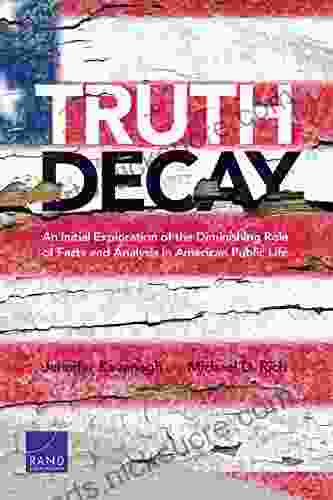
 Grayson Bell
Grayson BellAn Initial Exploration Of The Diminishing Role Of Facts...
When we think of the digital age, we often...
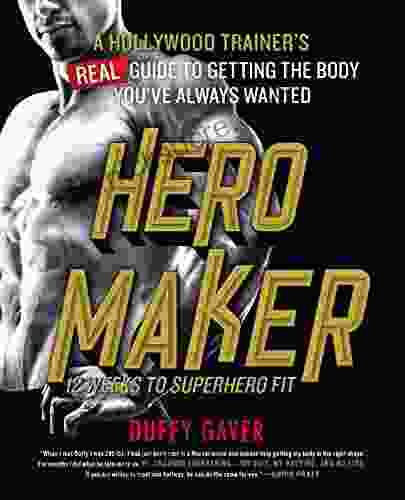
 Jayden Cox
Jayden CoxHollywood Trainer's Real Guide to Getting the Body You've...
Achieving a fit and...

 Octavio Paz
Octavio PazGood Walk Spoiled: An Exploration of the Effects of...
Dogs are often hailed...

 Jerome Powell
Jerome PowellMuhammad Allah Ahmed Hulusi: A Visionary Scholar and...
Muhammad Allah Ahmed Hulusi...
4.3 out of 5
| Language | : | English |
| File size | : | 1056 KB |
| Text-to-Speech | : | Enabled |
| Screen Reader | : | Supported |
| Enhanced typesetting | : | Enabled |
| Word Wise | : | Enabled |
| Print length | : | 395 pages |


